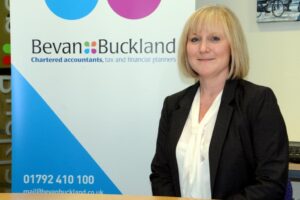We are now looking at different ways on how we are going to be able to operate our businesses when we can emerge from lockdown. We will need to still adhere to social distancing rules to keep ourselves our staff and our customers safe. As well as these challenges we all very much need to start to trade again and improve our cashflow positions. We at Bevan Buckland LLP have been looking at ways to assist businesses to improve cashflow during these difficult times.” Said Sara Dennis, Director at Bevan Buckland LLP.
Here are some of the ideas we have identified that may help your businesses cashflow:
Liquidity/Cashflow matters
Carry back losses: If you are in a loss-making position and your financial year has just ended, there is scope to carry back these losses against prior year Corporation tax for a refund. So, although at this time it may not be a priority for you getting your accounts done, HMRC are processing refunds quickly so it could prove beneficial to your business.
Research and Development tax claims
If your business claims R&D tax credits, then your Corporate tax return should be submitted ASAP as potentially you can surrender R&D Losses for cash instead of carrying forward the loss to future years.
Capital allowances
Has your business purchased a building or a refit along with fixtures and fittings? If so, we can assist with claims for capital allowances which again should be prioritized as would benefit your business’s cashflow to get the claim in early.
Business Interruption Loans
You may want to consider applying for a business interruption loan to help your business through these difficult months. These are some of the financial information that banks will require during the application.
You will need to provide 12 months forecasts showing the impact of Covid 19 on your business. These will be used to explain the amount of loan you are requesting and needs to take into account the other measures you have taken e.g vat deferrals, loan and asset finance payment holidays, rent breaks, employee retention scheme help, new shareholder capital introduced and extra terms with suppliers.
They will also request recent trading financial statements and up to date management figures to show how your business was trading before COVID 19.
In addition, if your balance sheet does not look that healthy you may want to consider debt equity swaps. A creditor may be happy to turn the debt into equity. Questions to ask are:
- At what price?
- How will the equity ownership change?
- How much of the release will be tax neutral?
There is also bounce back loans which businesses can apply for through their bank for borrowing between £2k and 50k. These seem simple to apply for and money is quite quick to come through.
Bad Debt Relief
Over the coming months, there is a distinct possibility that businesses will be unable to pay their suppliers. Bad debt relief is the mechanism through which the taxpayer claws back from HMRC. The vat paid on an invoice basis to it where the taxpayer has not been paid by the customer for 6 months and the debt has been written off in the day to day vat accounts and transferred to a bad debt account. This can then be reclaimed on the vat return that the conditions are first met or in a later vat return.
Other Finance Options
There are other finance options available should a business interruption loan or a bounce back loan not meet your business needs.
Asset finance – Can be a good alternative to other forms of borrowing. A business can use assets it owns such as plant, machinery or vehicles as security against a loan from an asset provider.
Invoice Financing – Invoice financing is a form of short term borrowing that is extended by a lender to its business customers on unpaid invoices. It is much more flexible than it has been in the past allowing businesses to turn it on and off whenever they need it. A company sells its sales receivables to improve its working capital which would provide the business with immediate funds.
Cashflow tips
- Look at your incomings and outgoings – identify creditors and get them onside. Ask for time to pay. Show them that your business was viable before COVID 19. If you have debtors talk to them to see if you can improve payment terms. Look at cutting your costs where possible or cheaper alternatives.
- Look at your stock wastage – can staff make efficiency’s and improve how they work to reduce stock wastage. Do not overstock your business, only buy what you need in case we have further lockdowns.
- If you need and can buy personal protective equipment HMRC have waived the vat on these items from April to July so they should be cheaper to purchase.
- Look at new ways of doing things, be innovative. Can you sell online or do zoom or meetings on teams? Can you do deliveries?
- Have you applied for all the grants available – the rates grant or the economic resilience fund grant.
For more information, please contact us on 01792 410100 alternatively email mail@bevanbuckland.co.uk

